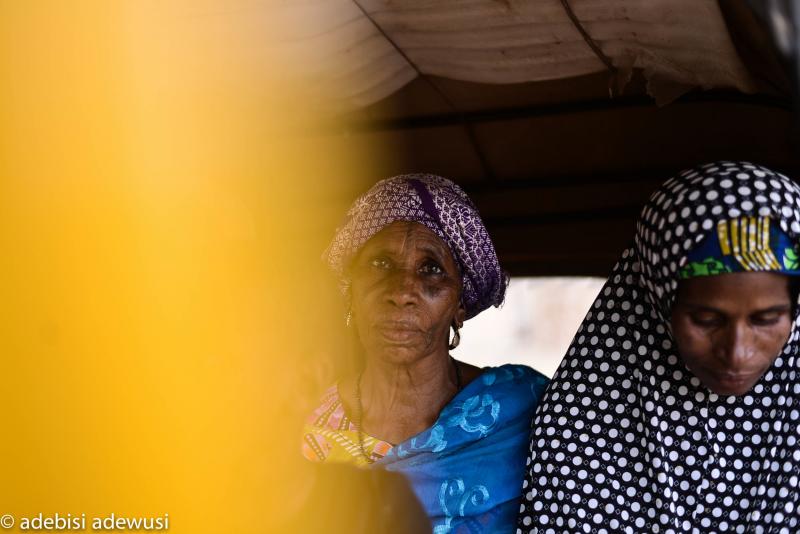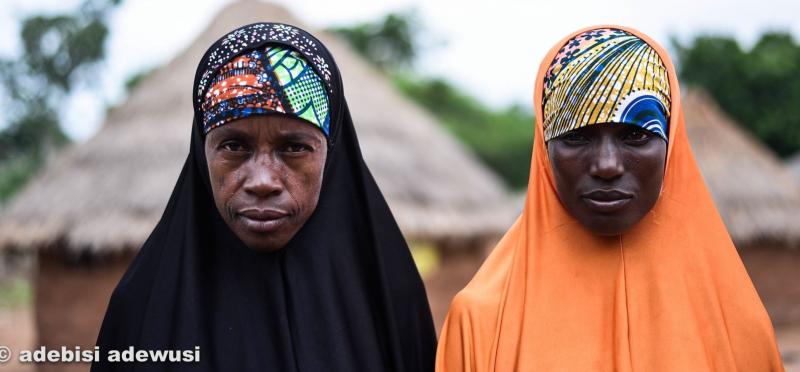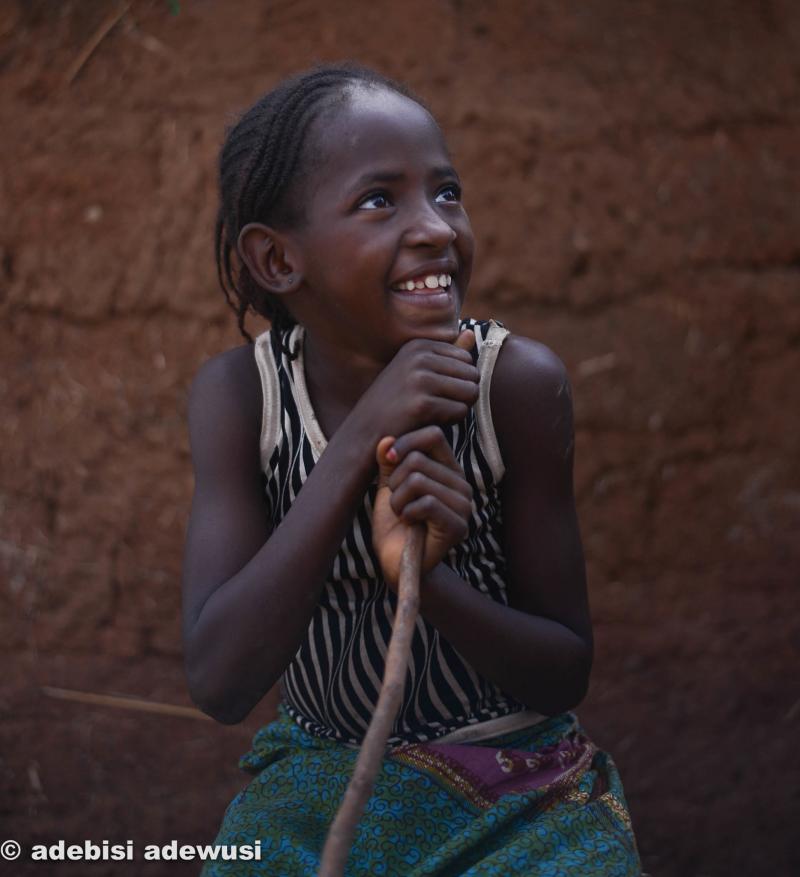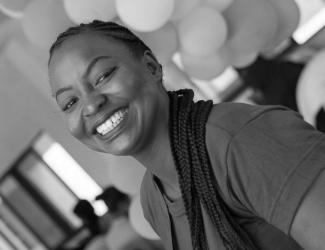Adebisi’s Feminism: Shaped by the past, sustained by the present
Valérie Bah
Lejla Medanhodzic
About a writer and photographer from Nigeria and the ancestral forces that led to her kind of feminism.
The alarm goes off at 3:00am daily for Adebisi. She confirms that it’s part of her motivation to write, something she has done since primary school.
“(I) Gave it up upon entering the university because I thought no one would take me seriously as a writer.”
Ten years later, she picked it up again. If she ignores the alarm she says, “I miss writing so much that I run back to it”.
Through her writing practice, Adebisi explores issues connected to feminism, gender and topics with strong social and political context. She has written on child marriage in Uganda, ending sexual violence in the Democratic Republic of Congo, sponsoring women technology events, nurturing one’s own creativity, gender stereotypes at work and other spaces.
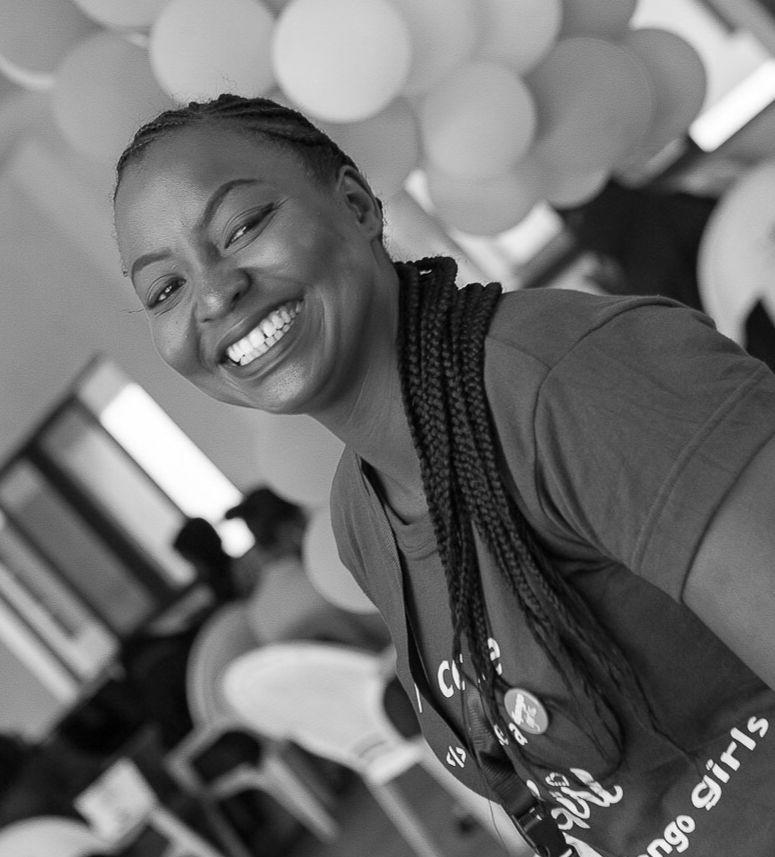
Ancestries of resistance
Across her body of work, Adebisi pinpoints her favourite piece as “Finding Biko: The Spirit of Black Consciousness Lives Among Born-Free South Africans”, a feature published in OkayAfrica, a media platform that highlights activism, arts, and culture across Africa and the diaspora.
In the article, she describes in-depth how the current generation of South African activists from the #FeesMustFall movement was influenced by their forerunner, Steven Biko, who propelled the Black Consciousness Movement and fought for Black liberation in South Africa.
“Thirty-nine years after his death, Biko continues to inspire the struggle for freedom in South Africa. This time the struggle is not for freedom from white minority rule but from the dismantling of a system that sentences South Africa's black born free generation to a cycle of exclusion. (Adebisi, OkayAfrica)”
“Unquestionably, to a keen observer of South Africa's history inherent in the #RhodesMustFall, #FeesMustFall and #OpenStellenbosch fallist movements, this political awakening (is) similar to that found among youths in the Soweto Uprising of June 16, 1976. (Adebisi, OkayAfrica)”
“This is South Africa's born free generation's way of embracing Biko's philosophy of Black Consciousness which states that ‘the black man must reject all value systems that seek to make him a foreigner in the country of his birth and reduce his basic human dignity’. (Adebisi, OkayAfrica)"
Intergenerational Feminisms
In the same way that she draws connections between Biko’s activism and the Fallist movement in South Africa, Adebisi is aware of how her own ideas on gender were shaped by her mother’s and grandmother’s feminisms (which they never labelled as such).
“My maternal grandmother climbed trees and refused to marry my grandfather. My grandmother’s daughter knew too much. She was the kind of woman most men aren’t comfortable with. These African women were the first feminists I knew even if they never identified themselves as such. Therefore, when people say feminism is un-African I smile.”
The young creative describes her journey toward rejecting pre-formatted brands of feminism and shaping a version of her own, one that suits her context and needs. “I am more inclined to see feminism as a daily, sustained practice”, she says. Adebisi points out that certain choices she makes are not because there is a specific point to prove, but are part of her space and being comfortable there:
“For instance, I hold a camera because I love it, not because I want to prove women can capture moments better. Consequently, to me feminism is not an ideology of competition.”
If you’re wondering, Adebisi told us that her feminist grandmother stopped climbing trees and eventually married her grandfather. But as she says:
“You probably figured that part already”.
Adebisi’s Quest
In May of 2017, Adebisi joined AWID as an individual member. She maintains a dynamic pace as a freelance writer, photographer and blogger from Nigeria. The Female Orator, an online platform she runs, is “created to inform, educate and inspire African women by sharing content related to them”.
Her writings have been published in African Feminism, OkayAfrica, Circumspecte, SheLeadsAfrica, and the Huffington Post. She has a firm handle on contemporary issues, but also reflects on what factors led her there:
“As a third wave feminist, I am still my mother’s feminism. My affiliation with the past is because it is still very much my present. This is because I still exist in spaces where sexism thrives. We still seek change and equality as found in the second wave.”
The spaces Adebisi mentions, where sexism, social injustice and inequity still exist, where second meets third wave feminism; these are points of convergence between the past and present. Here legacies and struggles of our ancestors’ feminisms intersect our own. Here we also find incredible opportunities for renewed energy and change as we step into our feminist futures.
Follow Adebisi @biswag, take a look at the Female Orator and see some of her photography work below.
